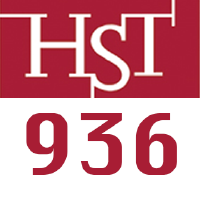2019.HST.936: Leveraging Data Science in Global Health

Background
HST.936 focuses on studying innovation in information systems to accelerate improvements of health outcomes in developing countries. It is increasingly clear that progress in the field of global health technology requires a coordinated interdisciplinary approach. This can best be accomplished by convening multidisciplinary teams to develop innovations that are thoughtfully combined to yield solutions greater than the sum of their individual parts. Additionally, the recent increase in available data from low and middle-income countries presents an opportunity to improve patient outcomes globally. Such data could be used to track disease outbreaks, assess drivers of infectious disease transmission, and track drug adherence. While there is immense potential for the use of data, it needs to be integrated across different systems, harmonized and curated. Liberating data from proprietary information systems and breaking down the silos between clinicians and the data scientists remain enormous barriers in the utilization of AI to address global health challenges.
In this 9th iteration of our course, we will explore digital disease surveillance through the lens of non-traditional data sources and data from low and middle-income countries. Developing countries are uniquely prone to large-scale emerging infectious disease outbreaks due to disruption of ecosystems, civil unrest, and poor healthcare infrastructure – and without comprehensive surveillance, delays in outbreak identification, resource deployment, and case management can be catastrophic. Students will learn how traditional data sources and non-traditional digital disease data sources – including news media, social media, Google Trends, and Google Street View – can fill critical knowledge gaps, expand our understanding of global disease burden, and help inform on-the-ground decision-making when formal surveillance systems are insufficient. This course is a collaborative offering from Sana, MIT Critical Data, Harvard School of Public Health, and Harvard Medical School, featuring speakers who are internationally recognized experts in the field.
Course Overview
This project-based course will allow students to gain real-world project experience by engaging in active global health technology projects at various stages of development. Our goals are to foster collaboration and facilitate the opportunity to showcase exciting innovative projects around the world. To this end, much of the in-class time will be dedicated to project workshops with international partners, while the bulk of the lecture material will be covered using an asynchronous learning model through our online course hosted by edX.
Sana's Mission
Sana advances a unique multidisciplinary integrative approach to improving global health: leveraging technology to overcome resource limitations, focusing on analytics to drive evidence-based quality improvement, and an educational program for capacity building to promote locally sustained innovation.
